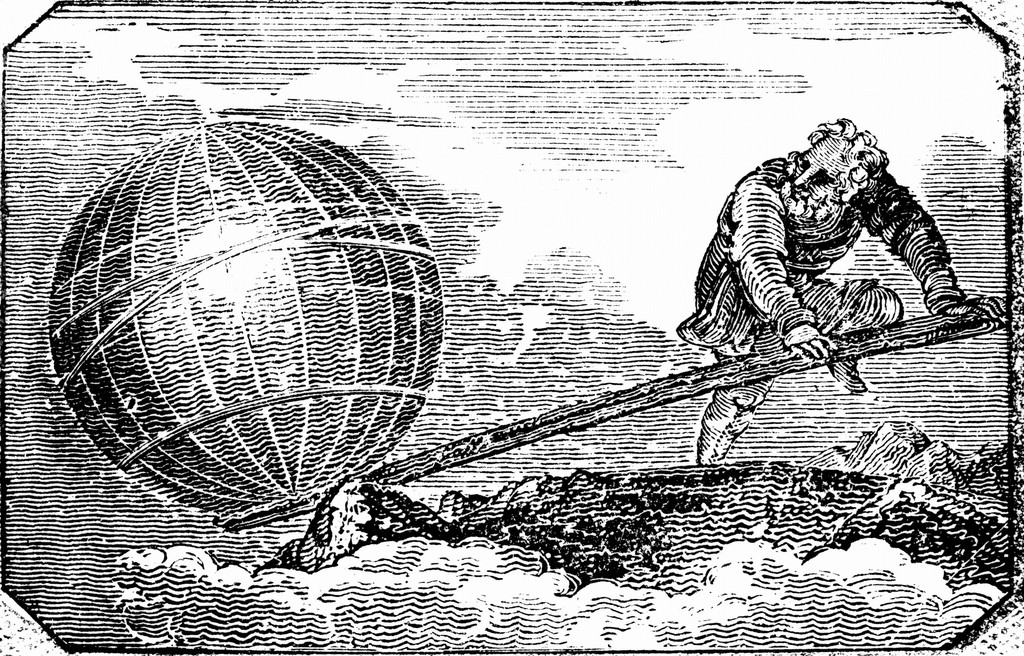The Value of Tools
Tools are often cited as an example of what separates humans from most other animals. And while it’s true that other animals also use tools, humans are a bit unique in that we’ve also developed tools that make tools. My dogs (I have two, Doge and Walter) occasionally utilize tools, but due to their lack of opposable thumbs their tool usage is quite limited. My dogs’ use of tools tends to be limited to acts which involve food or play.
Tools are not a great example of what makes humans special (a better example might be the use of money, the formation of societies and institutions, and knowledge sharing aka “memes”), but it’s fair to say humans take tooling to a level unparalled in the animal kingdom.
There are much better examples than dogs of animals who employ tools, such as birds using sticks to get at hard to catch insects, or how octopuses use coconut shells to build shelters. For humans, however, I’d argue that our creation of tooling is arguably the most clever thing we do. In many ways, the only output of technology are tools: it’s sometimes hard to understand what the purpose of the tool is, and how it works exactly, but nearly everything we build these days is a tool of some form.
Some tools are certainly more useful than others. For example, media is a tool for shaping the global consciousness, sometimes wielded by those with far more power than they deserve, like the modern day media barons and oligarchs. You may have heard the phrase “the medium is the message”, which the BBC also did a nice explainer on, and once understood properly is very difficult to un-understand. The media is not so much about delivering messages, but rather it’s a modern day tool for controlling which messages are permitted to exist in the minds of those who tune in to the media delivery systems.
Let me try and get back on track here: I think tools are fantastic, and in software development in particularly, tools are massively underrated. The most impactful technology companies of the current era got to where they are by creating tools:
- The early internet pioneers created email, a way to send electronic mail to anyone anywhere on the globe, which later evolved into instant messaging, arguably one of the most valuable inventions that came out of the internet. Instant messaging has since been spun off into countless specialized messaging platforms.
- Browsers were developed as a way to visualize and navigate content on the internet through a web of links between documents. The web browser is a tool that unlocked an incredible amount of new technologies.
- Google made a search index that used a reputation-based algorithm called “PageRank” (a pun on how one cofounder was named Page) to build a search engine that was remarkably useful at the time.
- Facebook created a simple tool for connecting with friends and family, exchanging messages, sharing photos, arguing about moral panics, political opinions, and spamming your conspiracy theories.
- Twitter came up with a simple way to spam your “followers”, which are people who willingly subscribe to your spams, for some reason or another. Why this is considered a good thing continues to perplex me.
You may notice that most of the examples I gave above related to advertising companies. Marshall McLuhan (of “the medium is the message” fame) also had much to say about ads.

At some point the tools become so complex that we forget to think about tools as compositions of other tools either through supply chains or abstractions built atop abstractions, and instead we think of these tools as magic. Software seems to have this modern day appeal as being magical, so much so that we have started referring to any kind of software that appears complex beyond explanation as “AI”. This is especially valuable to sales and marketing people who are trying to ride the AI hype wave which seems to have had a new renassaince recently thanks to some recent advances in text generation.
One well known historical figure was a person named Leonardo from a town called Vinci in the Tuscany region of Italy. During his lifetime he was most well known for his artwork which included paintings and sculptures. Later he became more well known for his writings, contraptions, ideas, and various other creations which we mostly know about through his writings.
What’s interesting about Leonardo’s story is that he invented tools to help create the timeless art we know him for today. The tools he invented allowed him to hide brushstrokes in the Mona Lisa, or present a mythological scene with a non-distorted perspective in The Last Supper. Prior to Leonardo’s use of these techniques, art looked quite wonky to say the least. Leonardo published his Treatise on Painting with the general theme that painting (perhaps art, more generally) was in fact a science, not an art. One keen observation Leonardo made is presented as the branching rule, which is:
All the branches of a tree at every stage of its height when put together are equal in thickness to the trunk
What’s most interesting about Leonardo’s observation is that it is, itself, a tool. You can apply this rule as a tool in your own artwork to make your trees look more realistic (if that’s the goal).
To sum up my core thesis in this rambling essay, I think the greatest value from technology is the creation of tools. The act of creation of any kind (whether it’s art, tooling, food, or anything else that is new or novel) is the highest form of value creation. Merely hoarding wealth doesn’t create value, because money is imaginary and on its own it cannot create anything, unless you use that money to pay someone who is creative and has the skills to create new things like tools and art and cooking techniques that produce delicious foods.
In other words: to create real value, focus on building tools that solve real problems or unlock new technologies.

